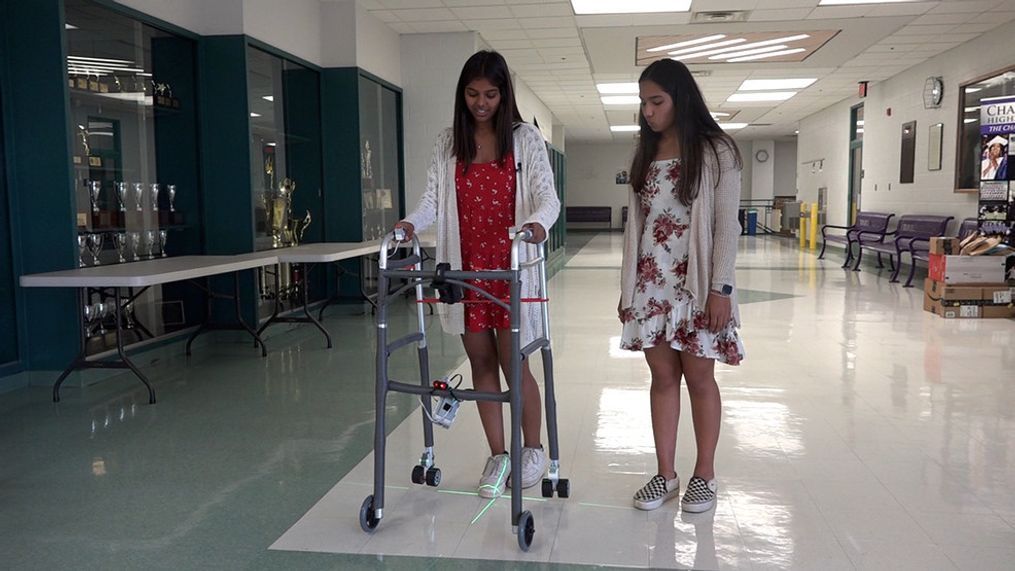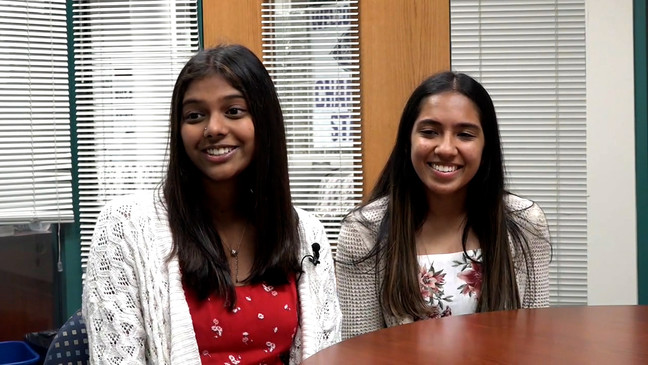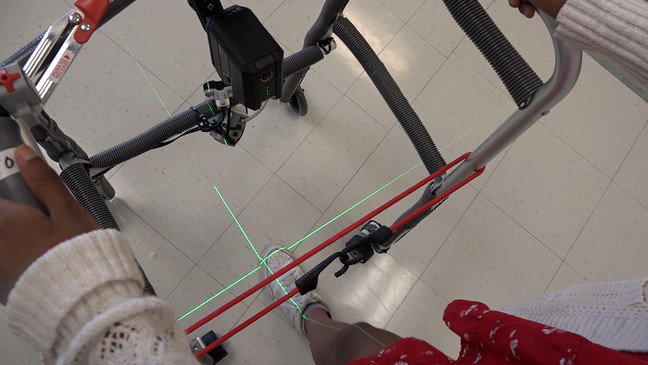High school students invent automatic walker for Parkinson's patients
FAIRFAX COUNTY, Va. (WJLA) — Two Virginia high school students are aiming to treat Parkinson's symptoms with a one-of-a-kind product they created over the last two years.
Kaavya Karthikeyan and Akanksha Tibrewala are childhood best friends, neighbors, and classmates at Chantilly High School in Fairfax County.
“We met through pre-school and she moved into the neighborhood a few years after so we have just been best friends after that,” said Kaavya.
They both want to study biomedical engineering and are eyeing Georgia Tech as a possibility of entering college together.
“Hopefully...” the two laughed.
But, perhaps their biggest passion they share together is caring for seniors and especially those with Parkinson's disease.
“It sparked with my great grandmother, she was paralyzed on one side of her body so it was extremely difficult for her to do simple tasks like walking,” said Akanksha.
“One of the main things that we were focusing on was that it is easy to use and they understand how to use it,” said Kaavya.
They spent the last two designing the automatic walker and testing it on patients in local facilities.
“Once we had this idea, we were really surprised to see there was nothing on the market like this," Kaavya. "We asked multiple Parkinson's patients and we got good feedback from them."
Now, they’re hoping to get a patent on it and get it on the market.
“That really motivated us to continue this project, they said this is something that can really help Parkinson's patients and people with mobility issues in general," explained Akanksha. "So it propelled us to go forward and we are in the process of researching what patent to get."




